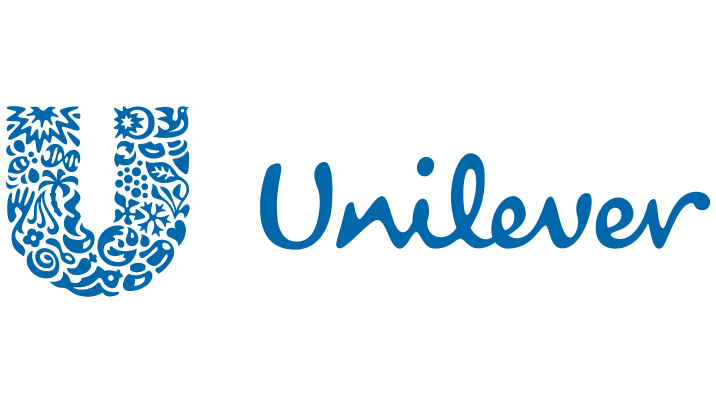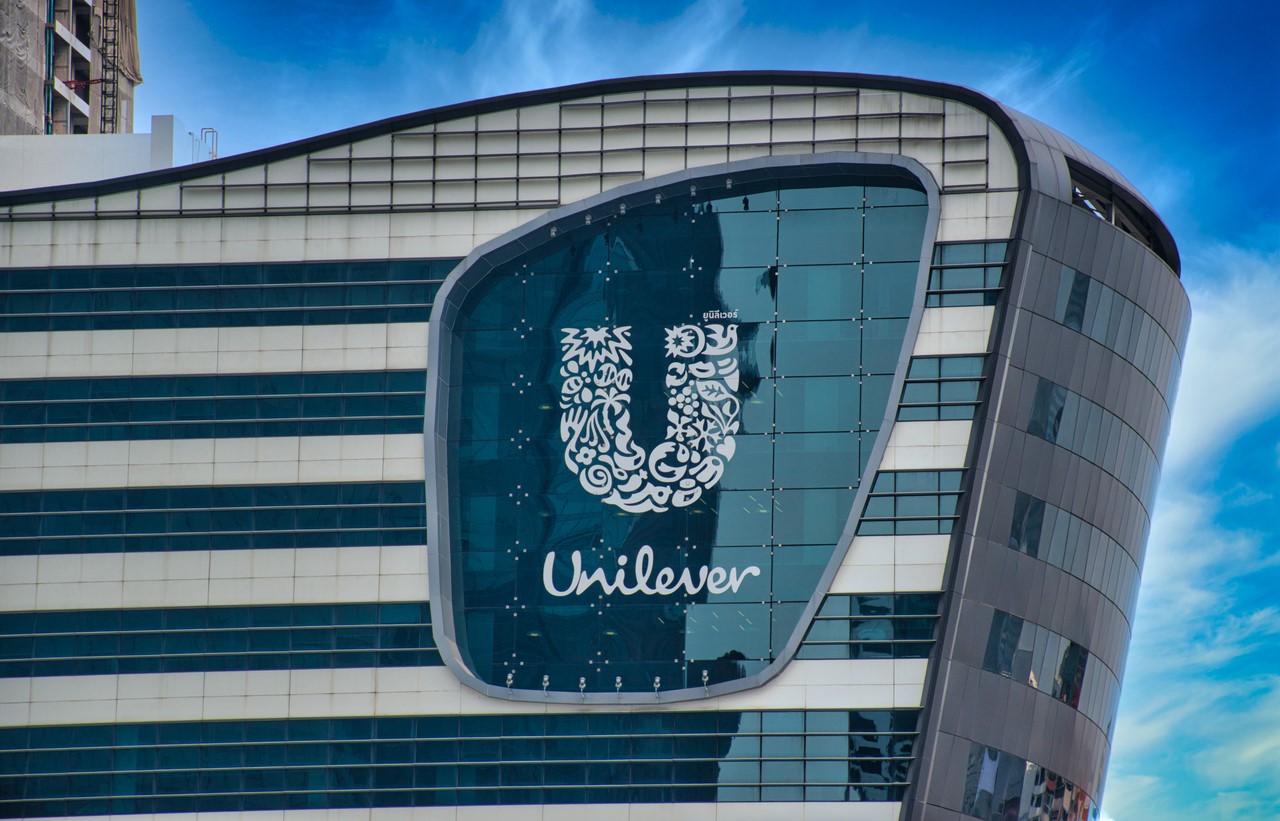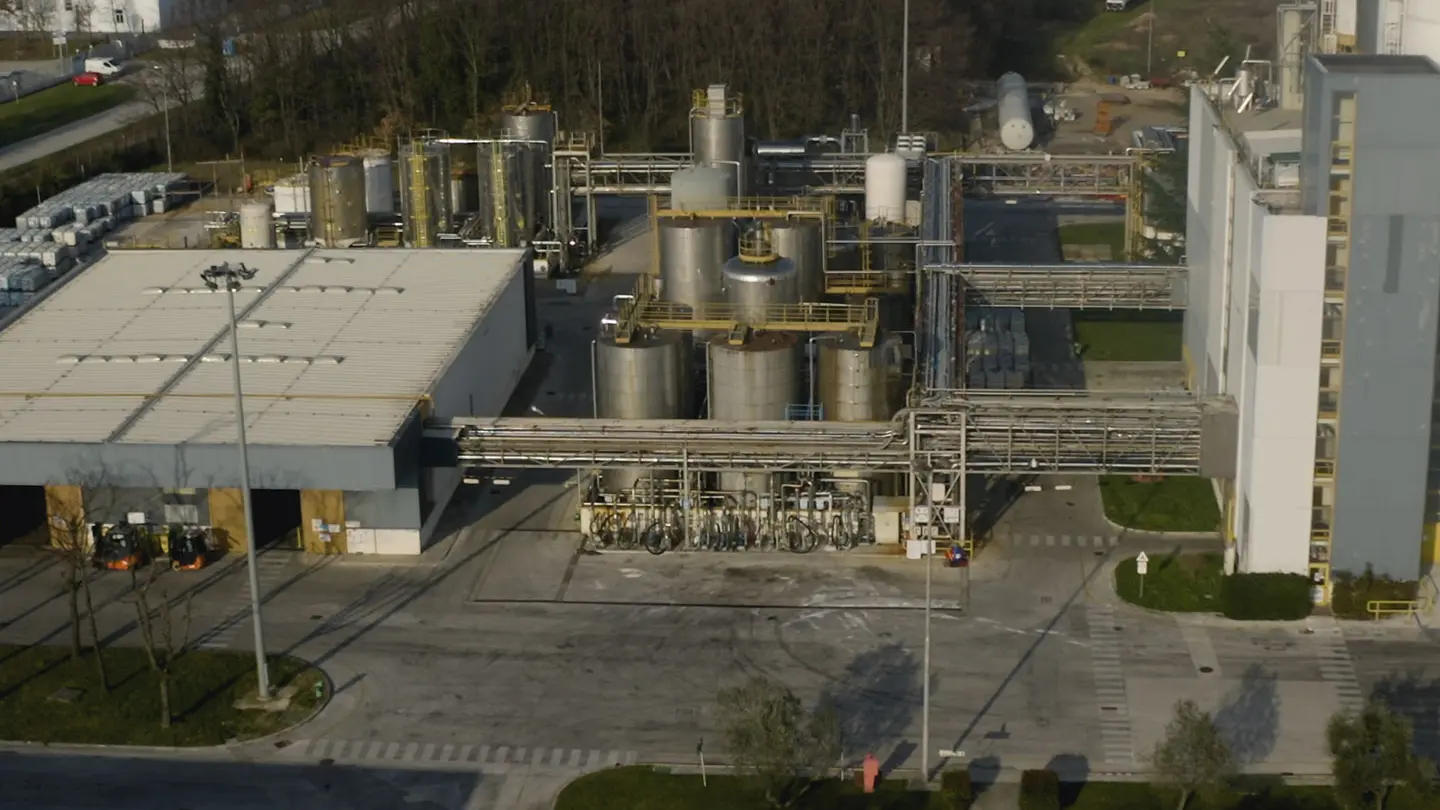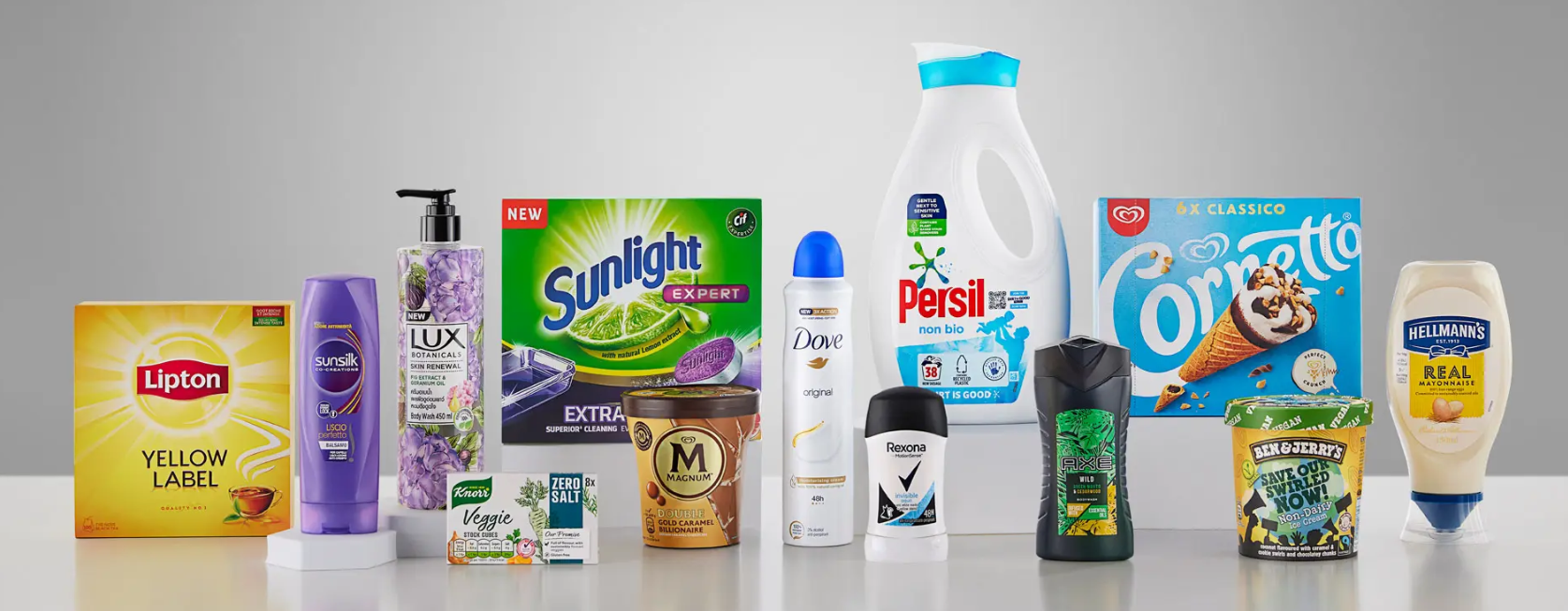Unilever
Summary
- Unilever Plc is the world’s largest consumer goods company
- Established over 100 years ago. The company has over 400 brand names in over 190 countries.
- It has €52 billion turnover in 2021 with 58% in emerging markets.

Unilever Plc (LSE:ULVR) is the world’s largest consumer goods company and engages in the manufacture and sale of consumer goods. Established over 100 years ago. The company has over 400 brand names in over 190 countries.1
Recent Developments
Unilever International enters deal to make hotel stays more sustainable
7/07/2022; Unilever International has forged a partnership with the InterContinental Hotels Group to supply the guest bathrooms in its Hotels & Resorts with larger packs of personal care products in a move that will significantly cut IHG’s single-use plastic footprint.2
Unilever International has entered into a global partnership with IHG Hotels & Resorts to replace bathroom miniatures with bulk amenities in over 4,000 of its properties, to help the hotel group cut its single-use plastics.

Financial Highlights
2022 First Half Year Results
Underlying sales growth in the first half was 8.1% with 9.8% from price and (1.6)% from volume. Growth was broad-based across all Divisions. Price has sequentially stepped up over the past two quarters, reaching 11.2% in the second quarter, which had, as expected, some negative impact on volume. This was more pronounced in Home Care, which was particularly exposed to rising input costs and took the highest pricing action, leading to underlying sales growth of 10.7%. Beauty & Personal Care grew 7.5%, driven by price and continued strong growth in Prestige Beauty and Health & Wellbeing, which is Unilever’s vitamins, minerals and supplements business. Foods & Refreshment grew 7.3% with slightly negative volume at (0.9)%, although volumes were flat excluding ekaterra. Ice cream out-of-home and Unilever Food Solutions showed strong double-digit growth in the first half, compensating for lower growth of in-home ice cream.3
Emerging markets grew by 10.0% with a 12.1% contribution from price and volume at (1.8)%, including an estimated adverse impact of around 70bps from the lockdowns in China. Pricing in Latin America was strong at 19.1% with volumes contracting by (4.8)%. South Asia grew strongly through both price and volume. Turkey delivered double-digit volume growth by managing dynamically through a high inflation environment. Developed markets increased by 5.5%, with 6.7% from price and (1.2)% from volume. North America grew 8.7%, helped by strong performances of dressings and its businesses in high growth areas such as Health & Wellbeing.
Turnover increased 14.9% to €29.6 billion, which included a currency impact of 5.6% and 0.6% from acquisitions net of disposals. Underlying operating profit was €5.0 billion, up 4.1% versus the prior year. Underlying operating margin declined by 180bps to 17.0%. Gross margin decreased by 210bps which reflected the very high inflation in input costs that was only partially mitigated by the strong pricing action and savings delivery. Brand and marketing investment was stepped up by €0.2 billion in constant exchange rates, which equated to a 40bps contribution to margin. Overheads increased by 10bps largely due to increased investment in business models with a higher overheads structure.
The company completed the sale of its global tea business, ekaterra, on 1 July 2022. On 7 July, the company completed the acquisition of a majority stake in Nutrafol, a leading provider of hair wellness products, which had been announced on 30 May 2022.
Beauty & Personal Care underlying sales grew 7.5% with 9.0% from price and (1.3)% from volume. Strong price increases landed across most categories, and were particularly pronounced in Latin America, South Asia and Turkey.
Home Care underlying sales grew 10.7% with 14.5% from price and (3.4)% from volume. Double-digit pricing landed across most geographies in response to very high increases in raw material costs.
Foods & Refreshment underlying sales grew 7.3% with 8.3% from price and (0.9)% from volume. Pricing was broadbased and particularly high in dressings given the input cost increases.

Geographical Area
Asia/AMET/RUB
Underlying sales grew 9.0% with 10.2% from price and (1.1)% from volume. China declined low single-digit with the strong start of the year being reversed in the second quarter due to the Covid lockdowns that particularly impacted Unilever Food Solutions and Beauty & Personal Care. South Asia continued its growth momentum with strong pricing and positive volumes. Growth accelerated in the second quarter, driven by the performance of Home Care and hair care. Indonesia grew high single-digit, after another quarter of price-driven growth, supported by strong performance of oral care, deodorants and scratch cooking aids, but overall volumes were still down, most notably in Home Care. Vietnam landed high pricing and positive volumes across all categories. Unilever has announced that the company will no longer invest in Russia, but the company will continue providing the local population with basic products. The company's Russian business represented around 1% of turnover and had a minor negative impact on the growth of the Group. Turkey posted very strong, broad-based growth across all categories, driven by both price and volume. In line with its treatment of other hyperinflationary countries, the underlying price growth in Turkey was capped from the second quarter.
The Americas
Underlying sales growth in North America was 8.7%, with 8.1% from price and 0.6% from volume. Double-digit growth in Beauty & Personal Care was driven by strong performance in deodorants and Health & Wellbeing, including high growth from Liquid IV. Prestige Beauty also continued its growth momentum, helped by consumers returning to the offline channels. Foods & Refreshment grew high single-digit, boosted by strong sales in dressings and out-of-home ice cream. Customer service challenges persisted in the second quarter, largely due to labour availability.
Latin America delivered underlying sales growth of 13.4%, with 19.1% from price and (4.8)% from volume. All Divisions delivered double-digit growth. In the context of high double-digit pricing, volumes declined in Brazil, Mexico and Chile, while volumes held up in Argentina.
Europe
Underlying sales grew 2.9% with price of 6.0% and (2.9)% from volume. Growth sequentially improved in the second quarter, helped by out-of-home ice cream sales as the channel re-opened. Unilever Food Solutions also posted strong double-digit growth with sales exceeding pre-Covid levels, driven by extended distribution and price growth. The United Kingdom, France and Germany posted low single-digit growth with pricing largely offset by volume declines.
Finance costs and tax
Net finance costs increased by €74 million to €227 million in the first half of 2022. The increase was largely driven by a higher cost of debt on bonds and commercial papers as well as higher other interest costs. This was partially offset by an increase in finance income from higher cash balances and positive rate variances. The interest rate on average net debt increased to 1.9% from 1.4% in the prior year.
The underlying effective tax rate for H1 2022 increased to 24.4% from 21.9% in H1 2021 due to changes in profit mix and the lapping of favourable one-offs in the prior year. The effective tax rate for H1 2022 was 26.8% compared with 22.7% in H1 2021. The 2022 figure included tax costs related to the separation of the ekaterra business.
Earnings per share
Underlying earnings per share increased by 1.0%, including a positive impact of 4.9% from currency. Constant underlying earnings per share decreased by 3.9%. The decline was mainly driven by lower margin, higher tax and finance costs, partially offset by turnover growth and a reduction in the number of shares. Diluted earnings per share decreased 4.7% to €1.13.
Restructuring costs
Restructuring costs in the first half increased to €359 million, compared to €306 million in the prior year. For the full year, the company expect restructuring costs of around €1 billion, including those linked to the implementation of the new operating model. From 2023, restructuring costs are anticipated to be around 1% of Group turnover.
Free cash flow
Free cash flow in the first half of 2022 was €2.2 billion, down from the €2.4 billion delivered in the first half of 2021. This decrease was due to higher cash tax and increased capital expenditure, partially offset by improved operating profit and working capital.
Net debt
Closing net debt increased to €27.1 billion compared with €25.5 billion at 31 December 2021. The increase was driven by dividends paid, the share buyback programme and an adverse currency impact, partially offset by free cash flow delivery.
2022 Outlook
The company's guidance for underlying sales growth in 2022 was previously at the top end of a range of 4.5% to 6.5%. The company now expect underlying sales growth to be above that range, driven by price with some further pressure on volume.
The company expect net material inflation for the year to remain high at around €4.6 billion with its forecast for the second half largely unchanged at around €2.6 billion. The company will continue to invest in the health of its brands. In the first half, the company increased absolute brand and marketing investment, and the company will again invest competitively in marketing, R&D and capital expenditure in the second half. The company's full year underlying operating margin expectation remains at 16%, which is within its guided range of 16% to 17%.
2021 performance
The Group generated turnover of €52.4 billion, operating profit of €8.7 billion, net profit of €6.6 billion and free cash flow of €6.4 billion.4
Operating profit was €8.7 billion which included €0.9 billion of non-underlying items, primarily restructuring costs and acquisition and disposal related costs. Restructuring costs of €0.6 billion are comprised of supply chain optimisation projects to improve gross margin and improve network agility, and organisational change projects to reduce overheads.
Underlying operating profit was €9.6 billion, an increase of 2.9%. This included an unfavourable currency impact of 4.3%. Underlying operating margin decreased by 10bps. Gross margin decreased by 120bps reflecting very high inflation in raw material, packaging and distribution costs globally. Brand and marketing investment and overheads contributed 90bps and 20bps to underlying operating margin respectively. There was an improvement in underlying operating margin when excluding currency impact. In line with its multi-year financial framework, the company delivered savings of €2 billion and its profit growth was ahead of its underlying sales growth on a comparable basis.
Free cash flow was €6.4 billion compared to €7.7 billion in the prior year. Low levels of capital expenditure and favourable working capital movements in 2020 were not repeated.

Business Overview
Established over 100 years ago, Unilever is one of the world’s largest consumer goods companies. €52 billion turnover in 2021 with 58% in emerging markets. Unilever is over 400 brand names in over 190 countries, 3.4 billion people use its products every day. The company has 148,000 employees worldwide.
Brands
Unilever has over 400 brands. Selected are listed below.5
| Beauty & Wellbeing | Personal Care | Home Care | Nutrition | Ice Cream |
| Dove | Axe | Cif | Bango | Ben & Jerry's |
| Equilibra | Dove | Comfort | Hellmann's | Magnum |
| Liquid I.V. | Lifebuoy | Domestos | Knorr | Wall's |
| OLLY | Lux | OMO | The Vegetarian Butcher | |
| Onnit | Rexona | Seventh Generation | ||
| SmartyPants | ||||
| Sunsilk | ||||
| Vaseline |
Company History
Dating back to the early 18th century, the Jurgens, a family of carpenters, begin selling on butter that they have received as payment for work. As this proves to be a profitable enterprise, in 1860 the family move to Oss, Brabant in the Netherlands, to focus on building up a successful business in the butter trade. By 1870, the business has expanded and begins exporting to England, the biggest market for Dutch butter.6
| 1860 | Dating back to the early 18th century, the Jurgens, a family of carpenters, begin selling on butter that they have received as payment for work. As this proves to be a profitable enterprise, in 1860 the family move to Oss, Brabant in the Netherlands, to focus on building up a successful business in the butter trade. |
| 1870 | The Van den Berghs, a family of butter merchants, have also built up a thriving butter trade in the Dutch town of Oss. By 1870, the business has expanded and begins exporting to England, the biggest market for Dutch butter. |
| 1871 | the Jurgens family acquire the patent for making margarine from its inventor Mège Mouriès. The new product, made from animal fat, can be mass produced as an affordable substitute for butter and becomes known as margarine. |
| 1884 | In northern England, Lever & Co, a family grocery business, begin producing a new soap,William Lever sells it wrapped in distinctive packs with a brand name - Sunlight. |
| 1894 | Lifebuoy launches with accessible health and hygiene in mind |
| 1902 | Lever Brothers begin to source their own supply of raw materials |
| 1904 | Lever Brothers launch Vim - an innovation in homecare |
| 1911 | Lever Brothers' first purpose-built research laboratory is constructed at Port Sunlight. |
| 1917 | Lever Brothers Ltd acquire Pears Soap, a company said to have been established as far back as 1789 by Andrew Pears. |
| 1922 | Lever Brothers Ltd buy Wall's, a popular sausage company. |
| 1929 | Margarine Unie and Lever Brothers sign an agreement to create Unilever. |
| 1943 | Unilever ventures into frozen products and acquires Batchelors |
| 1954 | Unilever launches Sunsilk shampoo |
| 1955 | Dove launches first soap bar in the US |
| 1971 | Lipton International is acquired and Unilever's tea business becomes one of the largest in the world. |
| 1973 | Frigo ice cream is acquired in Spain. |
| 1978 | Unilever acquires National Starch and increases presence in the US |
| 1984 | Unilever acquires PG Tips, the UK's biggest-selling tea brand |
| 1989 | Unilever acquires the Calvin Klein Cosmetics Company, and with it the Calvin Klein brand |
| 1993 | Unilever acquires Breyers ice cream in the US. |
| 1996 | Hindustan Lever and Brooke Bond Lipton India merge to create India's largest private sector company. |
| 1997 | Kibon ice cream is acquired in Brazil. Kibon becomes part of Unilever Heartbrand which is marketed in over 40 countries. |
| 2000 | Bestfoods joins Unilever in the second-largest cash acquisition in history. Other acquisitions include Slim-Fast Foods, Ben & Jerry's and the Amora Maille culinary business in France. |
| 2007 | Unilever announces agreements to acquire the Buavita vitality drinks brand in Indonesia and Inmarko, the leading ice cream business in Russia. |
| 2013 | The company re-enters the Myanmar market with the launch of full business operations including a new manufacturing facility and new headquarters in Yangon. |
| 2017 | Unilever's personal care brand Simple arrives in Brazil. |
| 2018 | Unilever launches its own brand: Love Beauty and Planet |
References
- ^ https://www.unilever.com/our-company/at-a-glance/
- ^ https://www.smiths.com/what-we-do
- ^ https://www.unilever.com/files/c285e622-5096-4908-a487-1179421ca33c/ir-q2-2022-full-announcement.pdf
- ^ https://www.unilever.com/files/92ui5egz/production/e582e46a7f7170fd10be32cf65113b738f19f0c2.pdf
- ^ https://www.unilever.com/brands/all-brands/
- ^ https://www.unilever.com/our-company/our-history-and-archives/




